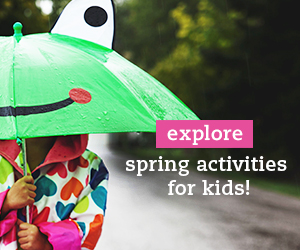Were you obsessed with what your kids ate when they were little? I was. Their little bodies were so pure and new. I didn’t want them to have processed foods or eat too much sugar. The box of Fruit Roll-Ups in the pantry today is an indication that I’ve eased up quite a bit. But what if this whole time, instead of being concerned with what we’re feeding our kids, we should’ve been taking a hard look at when we’re feeding them? Have we considered whether we’re raising an emotional eater?
Trust me. I know we have a lot to juggle as moms, so taking our kids for ice cream when they’ve done well on a test should be the least of our worries. Still, it’s good to know if what we’re doing is sending the wrong message. If we have created emotional eaters, can we reverse the damage? Here are 3 facts about emotional eating that surprised me.
Food to soothe is counter-biological.
This one is crazy! Research shows that a small child’s natural response to stress is actually to lose his or her appetite. So when we soothe a crying toddler with a cookie, banana, or other food, we are creating a behavioral abnormality.
An emotional eater is created by too much parental control.
A study from the American Journal of Clinical Nutrition found that children whose parents have a high level of control over their diets are more likely to be emotional eaters. “High level of control” means doing things like withholding food or using food as a reward. Researchers say over-control teaches children to rely on palatable foods to cope with negative emotions.
It’s a bad idea to bribe with dessert.
“No dessert unless you eat your veggies!” Have you ever said that? Well, the study also found that restricting unhealthy food and later using it as a reward for the clean plate club makes it more likely that kids will eat when not hungry and stunts the ability to self-regulate their diet.
If you’re like me, you’re thinking, “I can’t win! If I let them eat anything they want, they’ll have a weight problem and cavities. But if I try too hard to control their food, I’m creating an emotional eater!” Like most things in life, it’s about moderation. Going overboard withholding or rewarding can create an unnatural emotional tie to food.
Here are 3 tips to prevent emotional eating.
1. Find non-food ways to celebrate. I know it’s hard, but resist the temptation to use food to comfort or reward.
2. Avoid labeling any food as “bad.” Associating food with emotion, like shame or guilt, will only foster emotional eating.
And the big one:
3. Our kids need to learn that being upset is OK. When we give kids a treat to feel better, we inadvertently tell them that uncomfortable feelings are bad, they can’t handle them, and food will make it all better. Instead of offering the treat, talk them through how they’re feeling. Get them to recognize, name, and process their emotions.
What are some non-food ways to comfort or reward?








